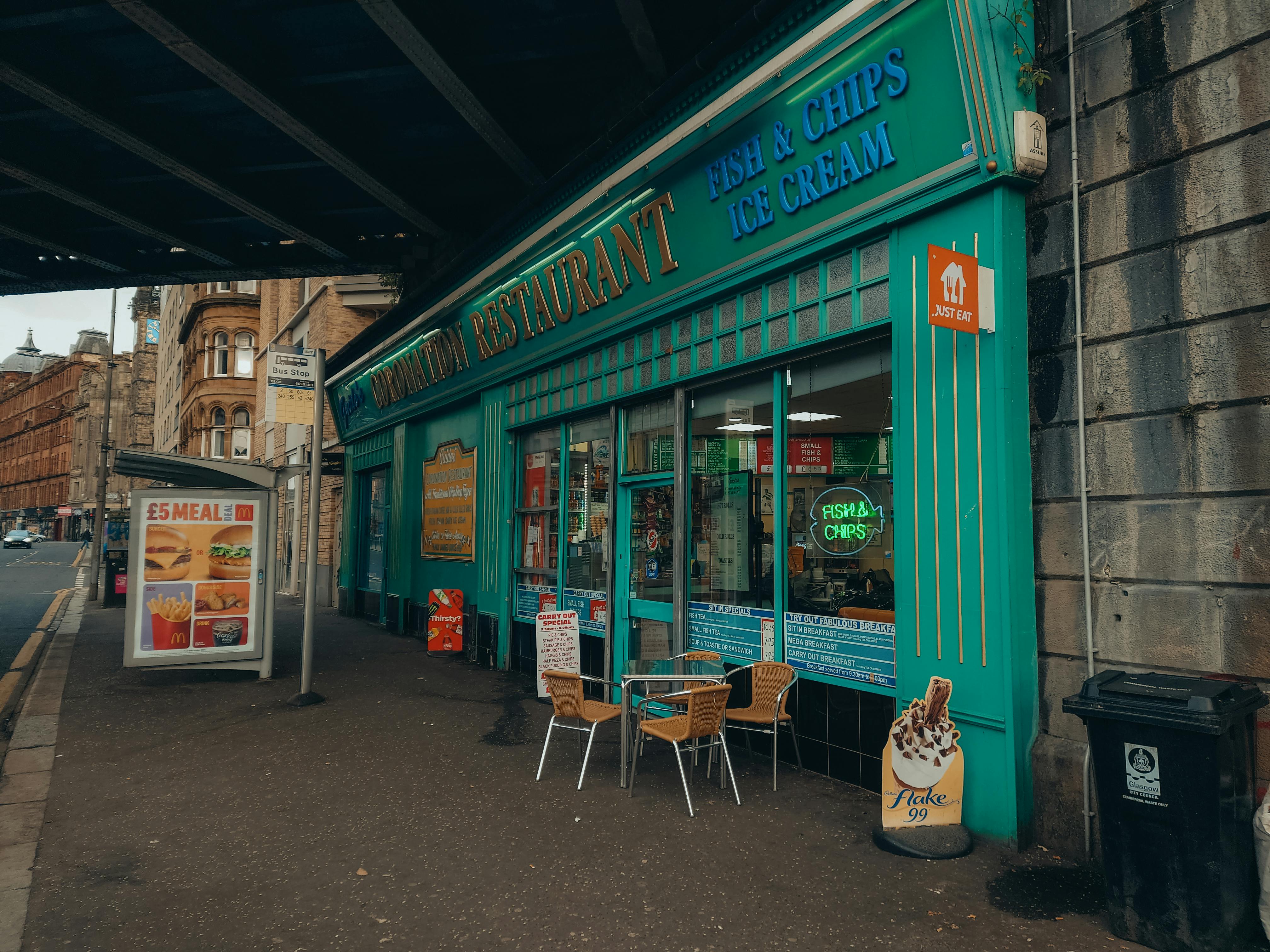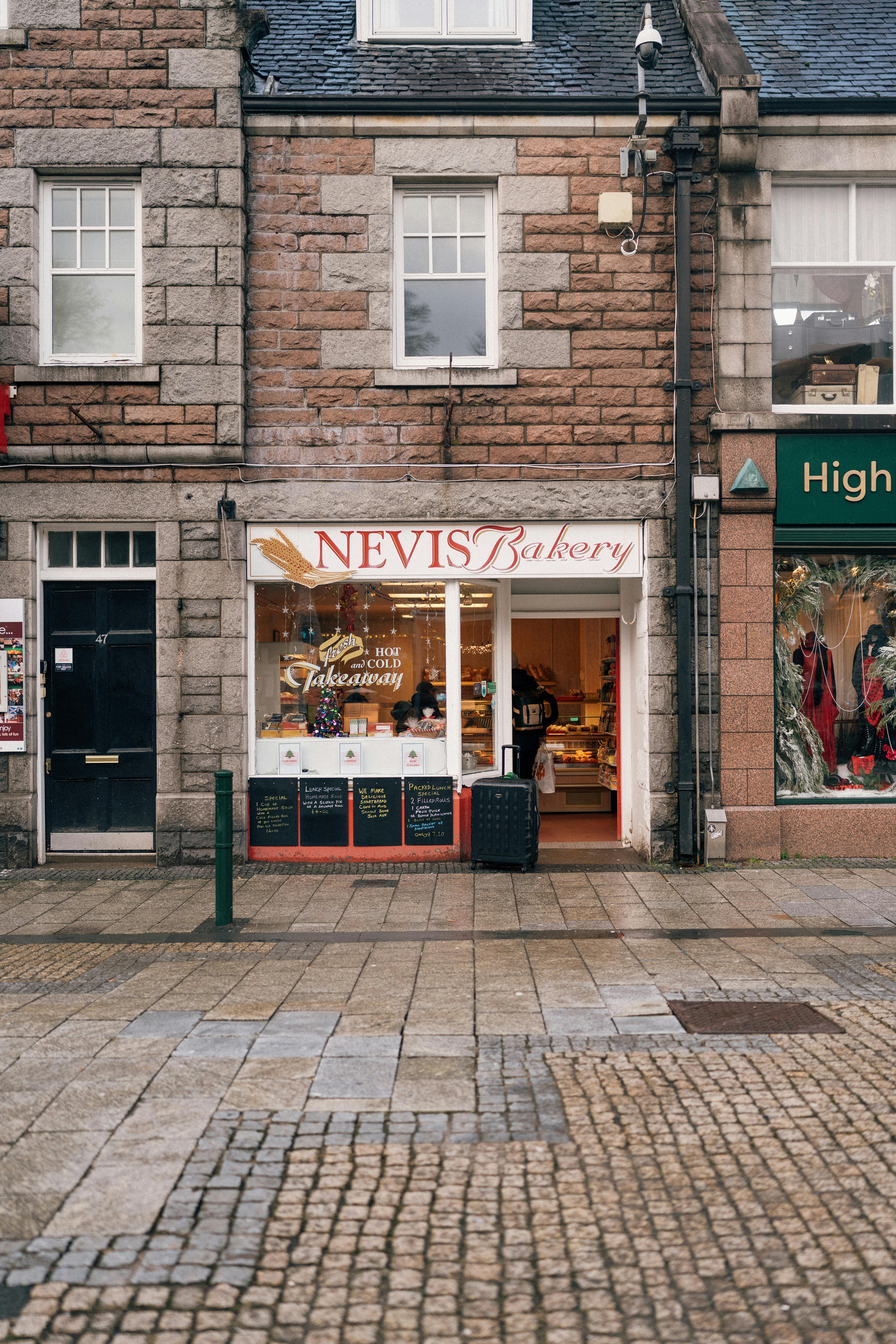Want to cut waste, support your community and feel good about where your money goes? Start on your local high street.
Shopping locally is one of the simplest ways to make a difference. It helps you reduce packaging, cut carbon, and support small businesses doing brilliant things. And the best part? It’s easy to start.
This guide breaks down 10 smart reasons to shop local and reduce waste, plus quick tips you can try today. Whether you’re picking up lunch, stocking your shop, or planning your weekly shop, there are plenty of small switches that make a big impact.
Why shopping local really cuts waste
Modern retail often means one thing: excess. Products are made in bulk, shipped across long distances, and wrapped in layers of packaging. It’s efficient on paper, but it creates a lot of waste (especially when stock goes unsold or gets damaged in transit).
Shopping locally is a different story.
Smaller businesses tend to order in smaller quantities, work with local suppliers, and focus on what their customers actually need. That means less overproduction, less packaging, and far fewer miles travelled, all of which helps reduce waste.
1. Less packaging and more refill options
If you’re trying to shop local and reduce packaging, independent shops are a great place to start. We’re starting to see a rise in refill shops across the UK, and many existing shops now offer refill stations for household essentials, or sell loose fruit, veg and dry goods without the plastic.
When you bring your own containers or buy just what you need, you cut down on single-use packaging and reduce what ends up in your bin. For businesses looking to cut retail waste and boost sustainability, this one small change can significantly lower both financial and environmental disposal costs.
2. Lower carbon footprint from shorter journeys
Shopping local also means your goods travel fewer miles to reach you. That reduces the emissions tied to transport, and cuts congestion and air pollution, too.
It’s also easier to walk, cycle or take public transport to your local shops, which makes low-waste shopping more convenient and climate-friendly.
And because local businesses tend to be more agile, they’re often quicker to adopt sustainable practices that keep waste down and reuse up – helping reduce what ends up in landfill.

Local produce, fresh benefits
Beyond tasting better, food grown and purchased locally often comes with less waste. When food doesn’t have to travel halfway around the world, there’s less chance of spoilage, damage or unnecessary processing. That means less food wasted before it even gets to your plate.
3. Fresher, seasonal food reduces waste and supports biodiversity
Seasonal eating goes hand in hand with low-waste living. When you buy what’s in season, such as British tomatoes in summer, sprouting broccoli in spring, or apples in autumn, you’re choosing food that’s grown closer to home and harvested at its best.
Shorter supply chains mean fewer preservatives, simpler packaging, and less chance of food going off in storage. It also supports biodiversity by encouraging a wider range of crops suited to UK conditions, rather than relying on energy-intensive imports year-round.
Want more practical ways to reduce food waste? Explore our guide to food waste management.
Grow your community and support the local economy
When you choose to shop locally, you’re investing in where you live and unlocking the benefits of local shopping at the same time as reducing waste. Every time you buy from a nearby shop, market or maker, you’re helping to build a stronger, more connected community.
Local businesses create local jobs, support other independents, and give back to the places they call home. When they thrive, high streets thrive and everyone benefits.
4. Keeps money in your neighbourhood
Research conducted by the Federation of Small Businesses has shown that for every £1 spent with a local business, around 63p stays in the local area. With larger businesses, it’s closer to 40p.
That difference matters. It means more money for local jobs, suppliers and services. It’s known as the local multiplier effect, and it’s one of the biggest benefits of shopping close to home.
5. Builds resilient, character-filled high streets
Independent shops bring personality to a place. They adapt quickly, try new ideas and offer something you can’t get online: real connection. And because they’re rooted in the community, they’re more likely to hire local people and support local causes.
First Mile works with retail businesses in towns and cities across the UK, helping them cut waste, recycle more and stay part of a thriving community. Because a strong high street is good for people, good for the planet, and central to local economy sustainability.

Circular impact and reusing goods
The more we reuse, the less we waste. And local shops play a big role in making that happen.
Charity shops, markets and second-hand stores are all part of a growing circular economy where goods are kept in use for longer, and waste is designed out from the start. It's better for the planet, and better for your budget, too.
6. Thrift, charity shops and second‑hand keep stuff out of landfill
Charity shops are the biggest circular retailers on the UK high street. They give clothes, books, furniture and tech a new life, while raising money for brilliant causes. Shopping second-hand saves carbon, avoids waste, and means every pound you spend goes further.
Charity Super.Mkt takes that idea even further. It’s the UK’s first multi-brand department store for charity fashion, bringing together retailers under one roof in high-profile spaces that would otherwise sit empty. Flexible leases make it easier for charities to join in, and the shared scale keeps costs down. In its first year, Charity Super.Mkt saved more than 105 tonnes of textiles from landfill, proving that second-hand is both sustainable and exciting.
7. Local markets and precycling reduce over-consumption
Precycling means thinking about waste before it happens and choosing options that avoid it altogether.
Local markets make that easy. You can buy what you need, skip the packaging, and avoid the overbuying that often comes with bulk retail. Whether it’s fresh produce, handmade goods or refillable products, local shopping supports more mindful choices from the start.
8. Repairs and reuse extend product life
Many local businesses go beyond simply selling new products by repairing and restoring what you already have. From shoe repairs and clothing alterations to bike workshops and tech fixers, these services keep items in use for longer and stop them ending up in the trash.
By choosing repair over replacement, you save money, reduce waste, and support skilled local trades that keep resources in circulation.
Smarter, more sustainable shopping habits
Shopping locally has the power to change how you buy, not just where you buy. Smaller shops and markets naturally encourage more thoughtful decisions. You see what’s available, buy what you need, and waste less in the process.
9. Mindful buying cuts impulse purchases and over-ordering
It’s easy to over-order when you’re shopping online or filling a trolley in a big supermarket. Local shopping works differently. You tend to buy little and often, based on what’s fresh and available.
That shift leads to less overconsumption, fewer impulse buys, and fewer items going to waste at home or in your business.
10. Apps and redistribution tools help reduce food waste
Technology is also making local shopping smarter when it comes to issues like food waste. Apps like Olio and Too Good To Go connect people, shops and cafés with others who can make use of surplus food.
These tools help keep good food in circulation and out of the bin, saving businesses money while helping households and charities.

Take action: how to shop sustainably today
You don’t need a big plan to make a difference, just a few small switches. Try these low waste shopping tips and see how easy it feels:
- Pop into a refill shop with a jar or bottle from home
- Pick up a “wonky” piece of fruit or veg and save it from going to waste
- Swap the supermarket for your local market this weekend
- Choose one second-hand find instead of buying new
- Download a food-saving app like Too Good To Go and rescue a meal near you
Each action keeps resources in use and helps build a stronger, greener high street.
Local shopping proves that sustainability doesn’t have to be complicated. It’s about simple, everyday choices that save waste and support the people around you.
When you back local shops, refill stores and markets, you’re helping to shape thriving communities and a healthier planet.
At First Mile, we believe change is easiest when it’s built into daily life. That’s why we work with thousands of UK businesses to recycle more, waste less and stay ahead on sustainability. Together, those small steps add up to a big difference.


